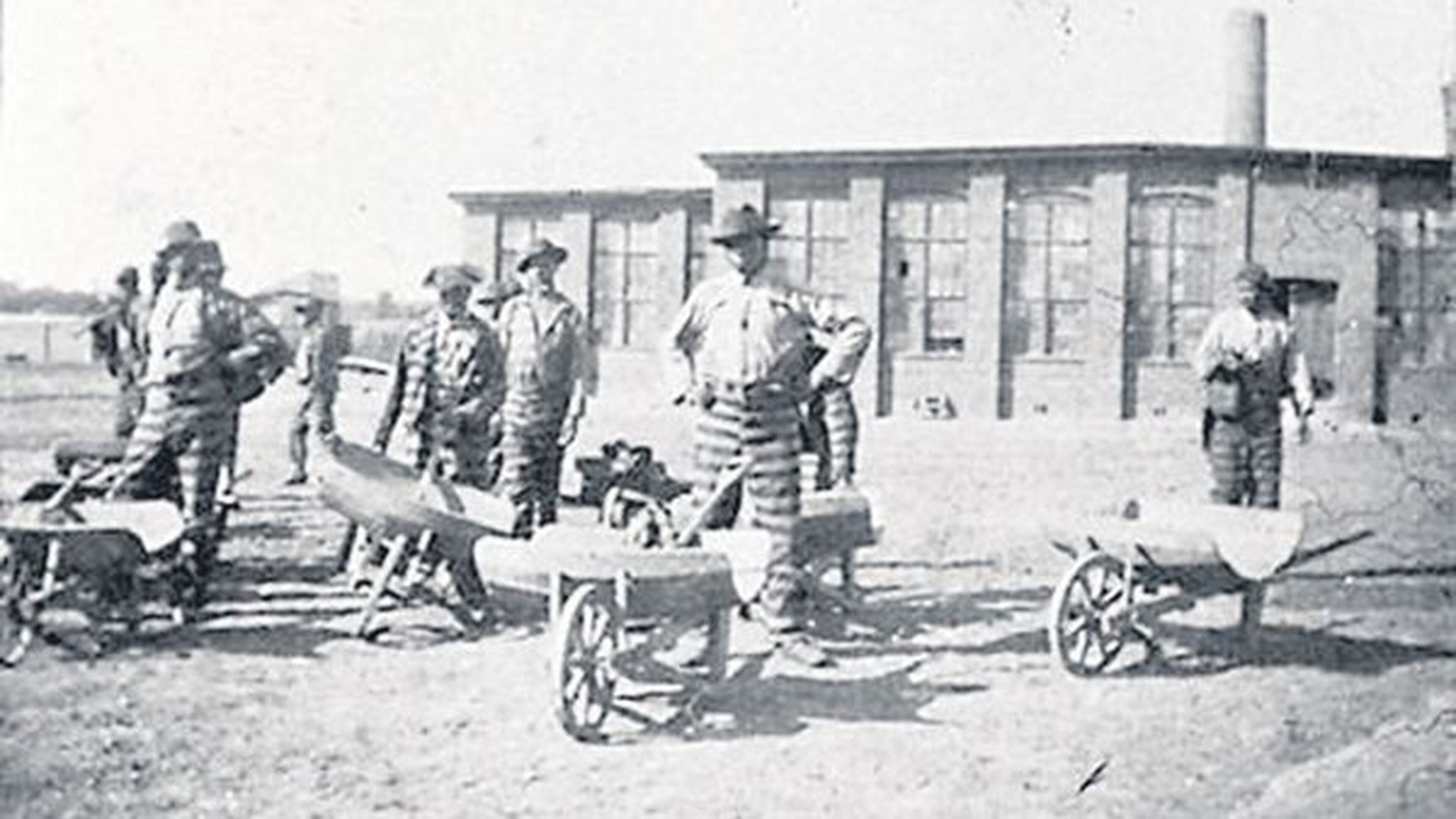Life with Gracie: ‘This form of slavery was actually legal’

What’s left of the old Chattahoochee Brick Co. doesn’t look like much.
Other than the brick sign at the entrance, only weeds, the concrete foundation and the dead bodies beneath the ground remain.
It is those dead bodies and, more precisely, the lost lives of the men forced into post-Civil War slavery that have some concerned with the future use of the site now that it’s up for sale again.
Rumor has it it’s destined to become a 24-hour rail service and storage area for ethanol and butane tankers, compliments of the Lincoln Terminal Co., but no one knows for sure.
What’s certain is the 75-acre site at the mouth of Proctor Creek on the Chattahoochee River is owned by General Shale Brick and they aren’t talking.
Ed Riggins, who represents the property owners, said he’s under a confidentiality agreement.
“I’m sorry. I can’t help you with this,” he said.
All Jay Scott and Stephanie Stuckey Benfield can say with a certainty is that it would be a shame to forget the men who were sold into slavery there.
"Those men were essentially enslaved post-Reconstruction and worked to their deaths on that site," Benfield said. "Turning it into a tanker storage facility wouldn't be a fitting memorial. It would be disrespectful."
Benfield is director of the Atlanta Office of Sustainability and a longtime environmental advocate. And Scott is an Atlanta landscape architect.
For history’s sake, they say, the property needs to be preserved, with the city taking the lead in a collaborative effort that includes the state and the Atlanta History Center.
Benfield envisions a greenway trail. Scott would like to see the property turned into an interactive museum that recalls the horror that occurred at the old brick company. Both can be accomplished, and both should be.
“Most people think the 13th Amendment ended slavery and the 15th Amendment guaranteed voting rights,” Scott said. “This site illustrates very clearly the difference between our Constitution and the laws that enforce it, since this form of slavery was actually legal up until World War II.”
In fact, the Chattahoochee Brick Co., along with other enterprises, practiced slavery under the auspices of the state of Georgia’s convict leasing program up until the early 1900s. Some consider this practice worse than slavery because there was no incentive for keeping the enslaved workers healthy or even alive.
“Although I generally prefer to emphasize the strength of individuals and positive aspects of the march towards civil rights, it is critical that we do not shy away from the painful and disgusting things that human beings have done to each other,” Scott said. “The sheer terror of this site illustrates the true bravery of people who continued to work for civil rights, even while knowing the CBC could have been in their future.”
In his Pulitzer Prize-winning book, “Slavery by Another Name: The Re-Enslavement of Black Americans From the Civil War to World War II,” Douglas Blackmon wrote that tens of thousands of black people were arbitrarily arrested and leased by government officials for labor to commercial interests like the brick company across the South. In 1906, the state of Alabama funded 25 percent of its state budget from this practice.
Blackmon details the forced labor, the CBC and its founder and president Capt. James W. English, a Confederate army veteran, banker and former Atlanta mayor.
The company closed its doors in 2002, was sold to General Shale Brick, headquartered in Johnson City, Tenn., and recently put up for sale again.
The brick company first came to Scott’s attention a few years ago when he read “Slavery by Another Name.”
He was horrified like the rest of us.
“It was so awful, I could hardly read it, but neither could I put it down,” Scott said.
This was not black sharecroppers trying to extricate themselves from farm labor. These were free men and all they had to do was look guilty, be in the wrong place at the wrong time, look at a white woman the wrong way, or change employers without permission. You name it. It was grounds enough to be arrested, forced into industrial servitude, bound by chains, left to subsist in subhuman conditions and subjected to physical torture.
“I consider this to be the Black Auschwitz of Georgia,” Scott said.
He’s right, you know.
Installing a rail terminal on top of their remains would be tantamount to desecrating a grave.
A lot of people feel uncomfortable talking about or remembering the brutal injustice of whites toward African-Americans.
Scott, Benfield and I understand that, but this isn’t just about remembering the bad stuff. This is about seizing the opportunity to right a wrong, to own up to our faults, so we can enjoy the good that is in all of us.
“Atlanta’s way has been to ignore things until they are destroyed and then put up a marker,” Scott said. “It is time to change that. This is important American history. To have a better future, we must first reconcile truthfully with the past.”
More Stories
The Latest



